-
 Bitcoin
Bitcoin $101,480.0112
8.91% -
 Ethereum
Ethereum $2,848.1133
7.77% -
 XRP
XRP $2.7470
25.15% -
 Tether USDt
Tether USDt $1.0008
0.06% -
 Solana
Solana $218.2932
16.38% -
 BNB
BNB $610.9568
6.47% -
 USDC
USDC $0.9998
-0.02% -
 Dogecoin
Dogecoin $0.2868
22.50% -
 Cardano
Cardano $0.8127
14.59% -
 TRON
TRON $0.2286
6.95% -
 Chainlink
Chainlink $21.2722
14.65% -
 Avalanche
Avalanche $28.0870
11.37% -
 Stellar
Stellar $0.3720
18.17% -
 Sui
Sui $3.6251
24.28% -
 Hedera
Hedera $0.2718
25.81% -
 Toncoin
Toncoin $4.0385
10.97% -
 Shiba Inu
Shiba Inu $0.0...01656
19.94% -
 UNUS SED LEO
UNUS SED LEO $9.7734
1.98% -
 Hyperliquid
Hyperliquid $24.8979
17.63% -
 Litecoin
Litecoin $107.6798
11.15% -
 Polkadot
Polkadot $5.1569
12.83% -
 Bitget Token
Bitget Token $6.6070
29.36% -
 Bitcoin Cash
Bitcoin Cash $351.3441
9.17% -
 Ethena USDe
Ethena USDe $0.9998
0.13% -
 MANTRA
MANTRA $6.0805
29.37% -
 Uniswap
Uniswap $9.7818
17.21% -
 Dai
Dai $0.9997
0.00% -
 Pepe
Pepe $0.0...01081
14.55% -
 Ondo
Ondo $1.4188
28.50% -
 NEAR Protocol
NEAR Protocol $3.7131
10.17%
How to safely store Request (REQ) coins?
Selecting the right REQ wallet is crucial, considering security features, device compatibility, transaction fees, user interface, and the wallet's reputation.
Dec 24, 2024 at 09:10 pm

Key Points:
- Understanding the different types of Request (REQ) wallets
- Choosing the right wallet for your specific needs
- Implementing security measures to protect your REQ holdings
How to Safely Store Request (REQ) Coins: Step-by-Step Guide
1. Understanding Request (REQ) Wallets
REQ wallets are digital software or hardware devices that store your private keys, granting access to your REQ holdings. They come in various types:
- Software Wallets: Desktop, mobile, and web-based wallets that store your private keys on your own devices or in a cloud storage system. They offer convenience and accessibility.
- Hardware Wallets: Physical devices that securely store your private keys offline, providing enhanced security. They are considered the most secure option for storing significant amounts of REQ.
- Paper Wallets: Physical documents containing your public and private keys. While offering cold storage security, they can be cumbersome to handle and susceptible to damage.
2. Selecting the Right Wallet
Consider the following factors when choosing a REQ wallet:
- Security features: Wallets differ in security measures such as hardware encryption, two-factor authentication, and seed phrase protection. Select a wallet with robust security protocols.
- Device compatibility: Ensure the wallet supports your preferred operating systems and devices.
- Transaction fees: Some wallets charge transaction fees for sending or receiving REQ. Compare fees to find the most cost-effective option.
- User interface: Opt for a wallet with an intuitive and easy-to-use interface that simplifies managing your REQ.
- Reputation: Choose wallets with a proven track record, positive user reviews, and active development teams.
3. Implementing Security Measures
Once you have a suitable REQ wallet, take these measures to enhance its security:
- Use strong passwords and seed phrases: Create complex and unique passwords and phrases to protect your wallet's access. Avoid using personal information.
- Enable two-factor authentication: Add an extra layer of security by requiring a second form of authentication when accessing your wallet.
- Store seed phrases securely: Keep your seed phrase confidential and write it down in multiple locations. Avoid storing it digitally.
- Be cautious of phishing scams: Do not share your wallet details or sensitive information with unreliable sources. Verify all communications from your wallet provider.
- Keep your software and hardware up-to-date: Ensure your wallet software and any connected devices are running the latest security updates.
FAQs:
Q: Which is the best REQ wallet?
A: The best REQ wallet depends on your individual preferences. If prioritizing security, consider hardware wallets. Software wallets offer convenience, while paper wallets provide offline storage.
Q: Is it safe to store REQ on exchanges?
A: While exchanges offer ease of trading, storing large amounts of REQ on exchanges may be risky due to potential hacking or security breaches. Consider transferring your REQ to a private wallet for enhanced security.
Q: How should I backup my REQ wallet?
A: Back up your wallet's seed phrase and any encrypted private keys securely. Store backups in multiple physical locations to minimize the risk of data loss. Avoid digital backups on your computer.
Q: What are the risks of storing REQ?
A: Improperly storing REQ can lead to theft, loss, or unauthorized access. Risks include weak passwords, phishing scams, software vulnerabilities, and hardware malfunctions. Follow best practices and implement security measures to mitigate these risks.
Q: How do I recover my REQ if I lose my wallet?
A: If you have backed up your seed phrase, you can recover your REQ by importing it into a new wallet. If you have lost your seed phrase, recovering your REQ may be challenging or impossible.
Disclaimer:info@kdj.com
The information provided is not trading advice. kdj.com does not assume any responsibility for any investments made based on the information provided in this article. Cryptocurrencies are highly volatile and it is highly recommended that you invest with caution after thorough research!
If you believe that the content used on this website infringes your copyright, please contact us immediately (info@kdj.com) and we will delete it promptly.
- Bitcoin (BTC) Faces Key Resistance Levels Amid Market Jitters, Crypto Bull Run at Risk
- 2025-02-04 10:25:59
- Spin Blitz Casino No Deposit Bonus: 7,500 Gold Coins and 2.5 Free Sweeps Coins
- 2025-02-04 10:25:59
- BetMGM Bonus Code MASSLIVE1500: Get Up to $1,500 in Bonuses for Super Bowl 59
- 2025-02-04 10:25:59
- DraftKings Sportsbook is offering Novelty Prop bets for the 2025 Super Bowl between the Chiefs and Eagles!
- 2025-02-04 10:25:59
- Solana (SOL) vs. PlutoChain ($PLUTO): Which L2 Solution Will Rule the Market?
- 2025-02-04 10:05:59
- 1Fuel (OFT) Presale Boom: The Next Big Crypto Wallet?
- 2025-02-04 10:05:59
Related knowledge
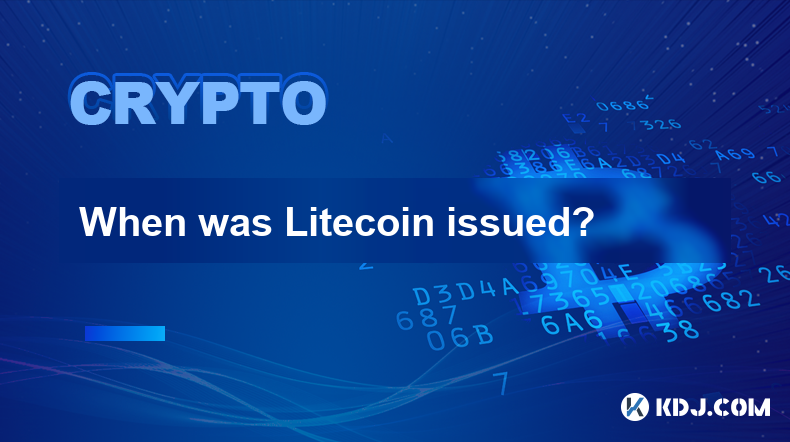
When was Litecoin issued?
Feb 04,2025 at 02:36am
When was Litecoin Issued?Key Points:Litecoin's inception and developmentLitecoin's launch date and market dynamicsLitecoin's technical specifications and key featuresLitecoin's Inception and DevelopmentLitecoin, conceived by former Google engineer Charlie Lee, emerged as a fork of Bitcoin in October 2011. Inspired by Bitcoin's revolutionary blockchain t...
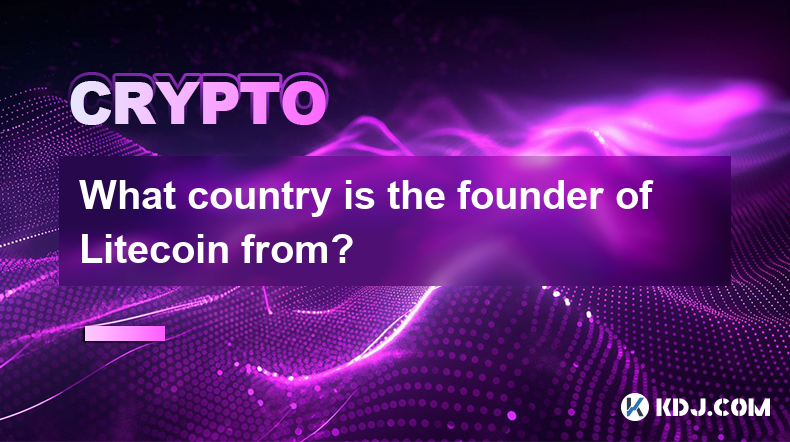
What country is the founder of Litecoin from?
Feb 04,2025 at 05:55am
Key Points:Litecoin's Founder and the Relationship with Charles LeeLitecoin's Technical Features and Similarities to BitcoinLitecoin's Role in the Cryptocurrency Ecosystem and Its PopularityComparative Analysis of Litecoin with Major CryptocurrenciesLitecoin's Community Involvement and PartnershipsArticle Content:Litecoin's Founder and the Relationship ...
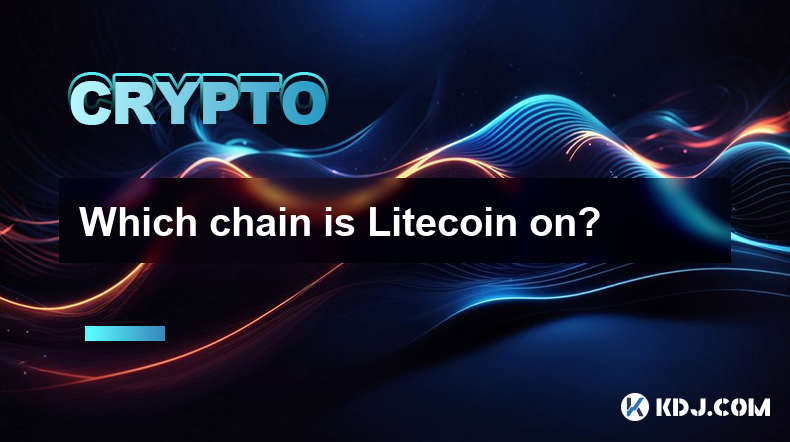
Which chain is Litecoin on?
Feb 04,2025 at 04:42am
Which Chain is Litecoin on?Key Points:Litecoin is built on its own blockchain, distinct from other cryptocurrencies.The Litecoin blockchain is a modified version of the Bitcoin blockchain.Litecoin's blockchain has faster block confirmation times than Bitcoin.Litecoin's blockchain has a larger maximum supply than Bitcoin.Detailed Guide:1. Litecoin's Uniq...
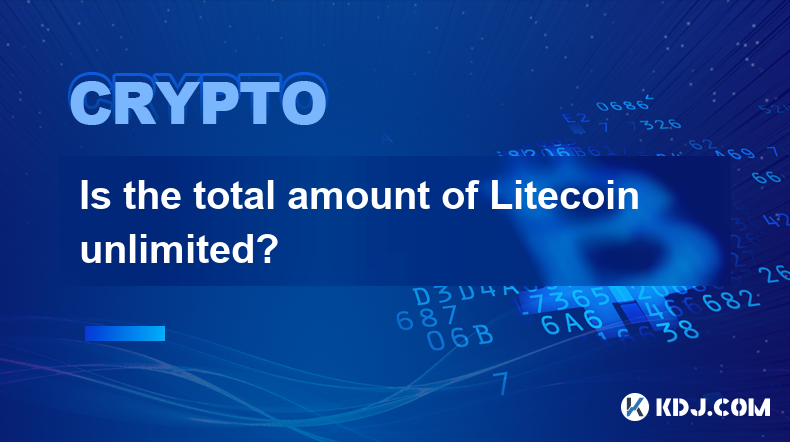
Is the total amount of Litecoin unlimited?
Feb 04,2025 at 05:36am
Key Points:Litecoin's total supply is capped at 84 million LTC.Litecoin's block reward halving occurs every 840,000 blocks, reducing the number of new LTC released into circulation over time.The supply issuance schedule ensures a predictable and finite supply of Litecoin.Is the Total Amount of Litecoin Unlimited?No, Litecoin's total supply is limited to...
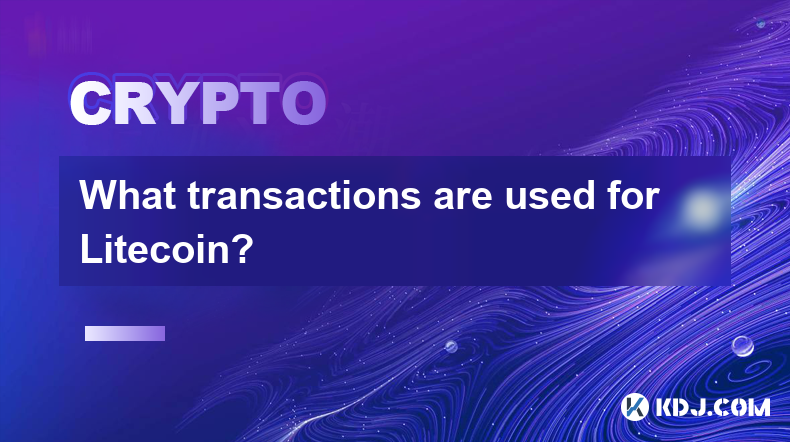
What transactions are used for Litecoin?
Feb 04,2025 at 06:30am
Key Points:Litecoin is used for various transactions, including:Everyday PurchasesInternational RemittancesDecentralized Finance (DeFi)Online GamblingPeer-to-Peer PaymentsSteps Involved in Litecoin Transactions:Creating a Litecoin Wallet: A wallet is necessary to store, send, and receive Litecoin. There are various types of wallets, including software w...

How to open a contract with Litecoin?
Feb 04,2025 at 01:36am
Key Points:Understanding Litecoin Futures ContractsSelecting a Reputable Cryptocurrency ExchangeFunding Your Trading AccountPlacing a Contract OrderMonitoring and Managing Your PositionHow to Open a Contract with Litecoin:1. Understanding Litecoin Futures Contracts:Litecoin futures contracts are financial instruments that allow traders to speculate on t...

When was Litecoin issued?
Feb 04,2025 at 02:36am
When was Litecoin Issued?Key Points:Litecoin's inception and developmentLitecoin's launch date and market dynamicsLitecoin's technical specifications and key featuresLitecoin's Inception and DevelopmentLitecoin, conceived by former Google engineer Charlie Lee, emerged as a fork of Bitcoin in October 2011. Inspired by Bitcoin's revolutionary blockchain t...

What country is the founder of Litecoin from?
Feb 04,2025 at 05:55am
Key Points:Litecoin's Founder and the Relationship with Charles LeeLitecoin's Technical Features and Similarities to BitcoinLitecoin's Role in the Cryptocurrency Ecosystem and Its PopularityComparative Analysis of Litecoin with Major CryptocurrenciesLitecoin's Community Involvement and PartnershipsArticle Content:Litecoin's Founder and the Relationship ...

Which chain is Litecoin on?
Feb 04,2025 at 04:42am
Which Chain is Litecoin on?Key Points:Litecoin is built on its own blockchain, distinct from other cryptocurrencies.The Litecoin blockchain is a modified version of the Bitcoin blockchain.Litecoin's blockchain has faster block confirmation times than Bitcoin.Litecoin's blockchain has a larger maximum supply than Bitcoin.Detailed Guide:1. Litecoin's Uniq...

Is the total amount of Litecoin unlimited?
Feb 04,2025 at 05:36am
Key Points:Litecoin's total supply is capped at 84 million LTC.Litecoin's block reward halving occurs every 840,000 blocks, reducing the number of new LTC released into circulation over time.The supply issuance schedule ensures a predictable and finite supply of Litecoin.Is the Total Amount of Litecoin Unlimited?No, Litecoin's total supply is limited to...

What transactions are used for Litecoin?
Feb 04,2025 at 06:30am
Key Points:Litecoin is used for various transactions, including:Everyday PurchasesInternational RemittancesDecentralized Finance (DeFi)Online GamblingPeer-to-Peer PaymentsSteps Involved in Litecoin Transactions:Creating a Litecoin Wallet: A wallet is necessary to store, send, and receive Litecoin. There are various types of wallets, including software w...

How to open a contract with Litecoin?
Feb 04,2025 at 01:36am
Key Points:Understanding Litecoin Futures ContractsSelecting a Reputable Cryptocurrency ExchangeFunding Your Trading AccountPlacing a Contract OrderMonitoring and Managing Your PositionHow to Open a Contract with Litecoin:1. Understanding Litecoin Futures Contracts:Litecoin futures contracts are financial instruments that allow traders to speculate on t...
See all articles

























































































